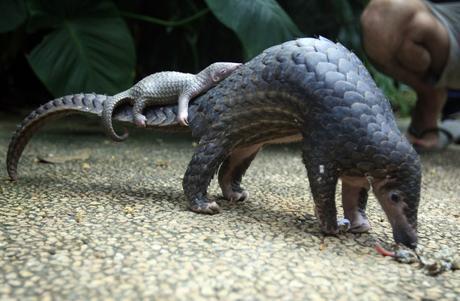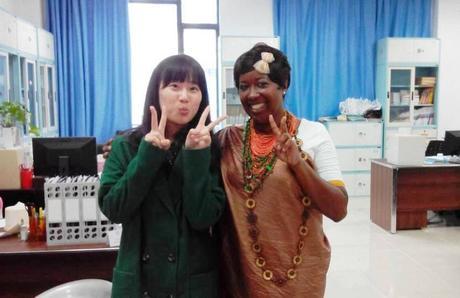Chinese in Uganda: tourism opportunities and conservation threats
Welcome to Diary of a Muzungu! This week’s guest post is by Sandra Rwese, a brilliant Ugandan entrepreneur who I first heard speak at a Nature Uganda public talk in Kampala. Sandra gave us an introduction to Chinese culture, the opportunities – and threats – that this new market poses to tourism and conservation in Uganda. Her insights are fascinating!

Sandra Rwese, Chinese tourism in Uganda marketing expert
Sandra Rwese is a bilingual tourism expert with many years research experience in China’s outbound tourism landscape. In 2012 she won the Silver Prize for Product Innovation during the prestigious CTW Awards in Beijing. She writes:
“Travel is my religion, and Asia is one of the most fascinating places l happened to explore during my many travels. Having spent time living and studying in mainland China and Hong Kong, l decided to relocate back to Kampala in 2014. I saw a niche in Sino-Africa travel connections and immediately went about launching my tourism consulting firm Gulu & Hirst (G&H).
It took infinite persistence trying to market my advisory services in Uganda – in a country where CEOs prefer to wait until the absolute last minute before reacting to fresh business ideas. I remember once waiting three hours in a reception hall for a brief chance to meet one leading tourism stakeholder. Such is the journey towards promoting China’s USD 422 billion consumer potential to Uganda’s tourism fraternity.
Part of my consulting includes pushing for ecological conservation and, with each public lecture or sales training session, l never miss an opportunity to caution my audiences on the environmental ramifications of mass travel from China. Yes the Chinese have big money to spend overseas, lots of it. But their high propensity for eating arthropods and game meat could come at a higher cost to Uganda’s plant and animal species than we imagined. We simply cannot afford mass Chinese arrivals in groups as large as 200 per flight.

HEADLINE December 2016: Chinese Officials Seize Record-Breaking Pangolin Haul From Poachers. PHOTO: A pangolin carries its baby at a Bali zoo, Indonesia (AP Photo/Firdia Lisnawati)

Customs officers stand guard over seized pangolin scales at a port in Shanghai (Photo: AFP/CCTV)
Chinese tourists are fearless and have gained ill-repute in almost every country so far. Nothing is off limits. Not even rampant trafficking of cheetah hides, donkey meat, lion bones, ivory, sandalwood, albino crocodiles, butterflies, pangolins, sea turtles, and rare national treasures. In my analysis, Uganda’s only hope in upholding species protection rights is by forming legally binding partnerships with travel agents and institutions sending visitors from China. So that their groups are fewer and contained.
New Zealand is doing just that i.e. partnering with travel agents, universities, and FITs (Free Independent Travelers) in China to bring controlled tour groups. This closes the loop on traffickers who often sneak in on individual tourist visas. I see a win-win situation for Uganda if only this matter is taken as a matter of urgency; especially with new waves of Chinese migrants setting up tour companies right here and ferrying in travellers whose origins are anyone’s guess.

Sandra Rwese and a Chinese colleague. Sandra is an expert in marketing Chinese tourism to Uganda
The second strategy would be to use Chinese social media campaigns to promote responsible tourism. Community outreach is critical and netizens must be alerted to Uganda’ laws against poaching and wildlife plunder. G&H is moving in this very direction towards RenRen, Sina Weibo, WeChat, Qzone and other popular social apps to convey Uganda’s conservation mantra to the 136 million Chinese planning annual trips abroad. We can successfully build #BrandUganda on such social platforms within China by spreading the message that “Uganda is not for sale.”
Thank you Sandra for some illuminating words and practical advice about the Chinese in Uganda and Africa.
Follow Sandra Rwese on Twitter.
Like the Welcoming Chinese Tourists Facebook page.
Connect with Sandra Rwese on LinkedIn.
Tags:
anti-poaching, China, Conservation, Uganda« Where to travel in East Africa in 2017: the muzungu’s recommendations

